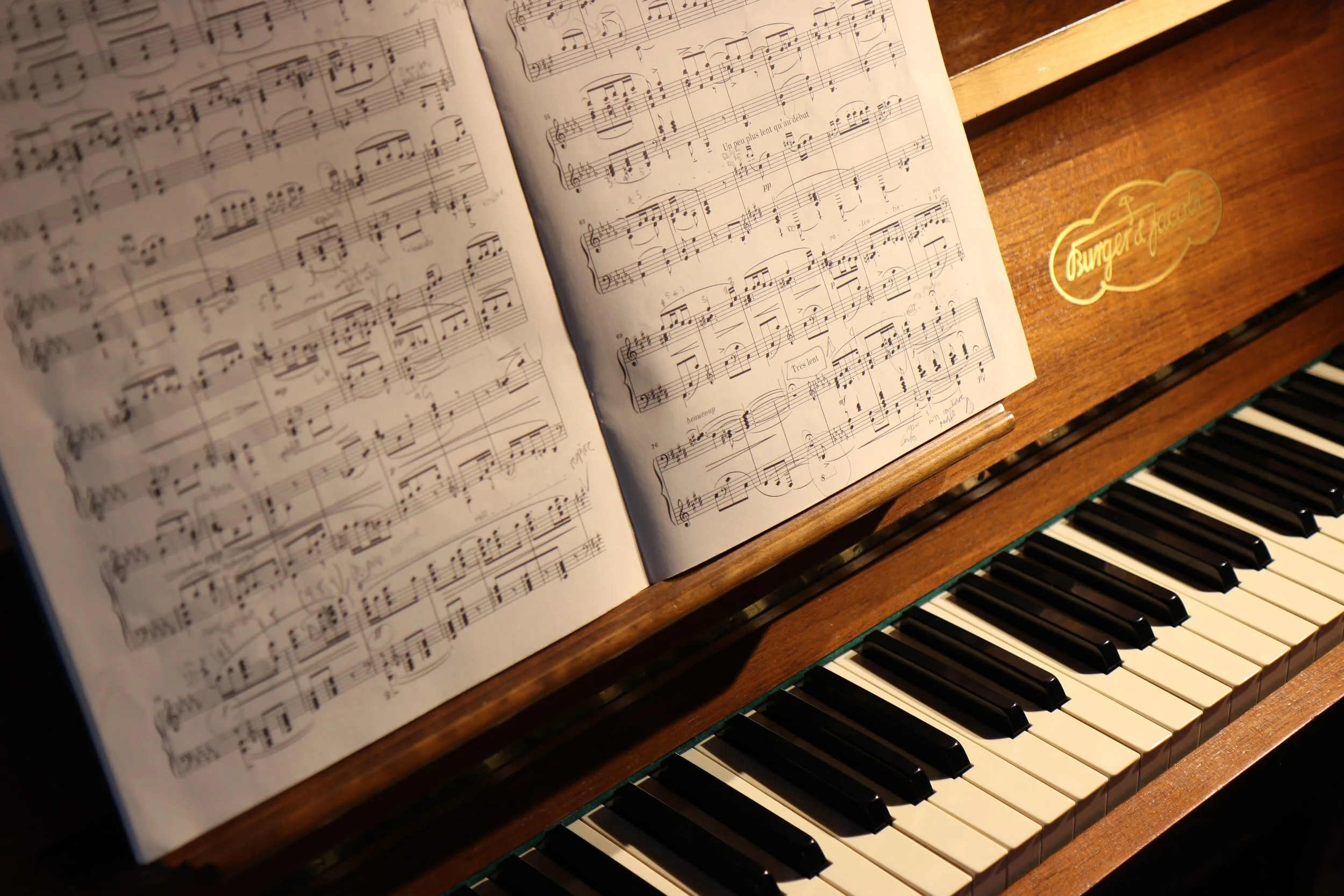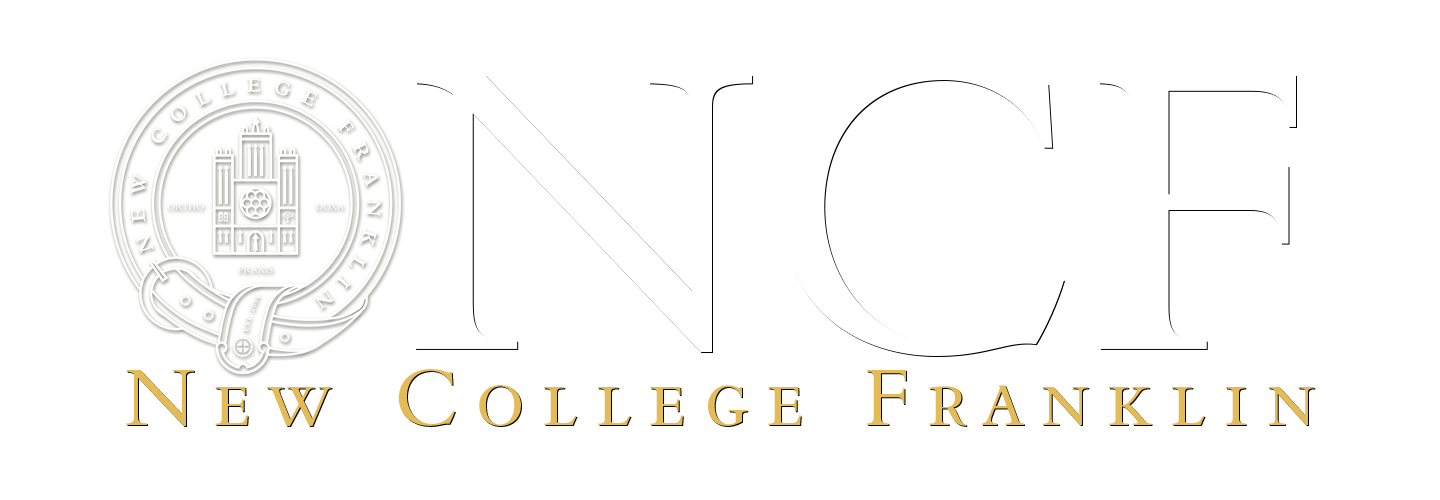
Quadrivium
The incarnational study of mathematics is for the sake of knowing God through His works, all which display his beauty, order, and design.
The Quadrivium, the last four of the seven classical liberal arts, is ordered toward a life of Christian philosophy, theology, and worship. It preserves the original natural friendship between science and wonder. The Quadrivium leads students through the hierarchical progression of arithmetic, geometry, harmonia, and cosmology. The principle of number serves as a stepping stone to the contemplation of the unity of the entire Cosmos. Students reflect upon natural and divine unity by contemplating the Cosmos as God’s symbolon. Students study number (arithmetic), number in space (geometry), number in time (harmonia), and finally, number in motion, time and space (cosmology). Mathematics functions as an ideal foundation for these studies insofar as it makes possible the contemplation of a complex whole by means of a limited number of principles. Further, mathematics reveals much of the order and design inherent in nature as well as its symbolic character. Finally, the Quadrivium also directs us to explore other principles and models by which to know and delight in the creation and the Creator.
This course of study facilitates a poetic stretching of the mind, while training students in precision of thought and humility. These studies ever remind us of our own limits -- that the perfectly Intelligible God who created all things by his Word, who calls us to know him, yet remains beyond our capacity of perfect comprehension. Students cycle twice through the four broadly construed disciplines of Arithmetic, Geometry, Harmonia, & Cosmology during their studies.

-
Quadrivium I: Arithmetic & Geometry
The Fall semester consists of an introductory course in classical arithmetic, i.e., number theory, this course covers formal relationships among the natural numbers including equality, prime factorization, combinatorics, as well as properties of finite and infinite summations. This analysis will permit excursus on the themes of measurement, the one and many, same and other, wholes and parts, and the limited and unlimited.
The Spring semester trains students in the tradition of Euclidean plane Geometry. Euclid’s Elements serves as a framework for logical, imaginative, systematic mathematical thinking. Students develop familiarity with the demands and structures of demonstrative science. The Elements take students on a journey from basic plane geometry, the nature of circles, inscribed figures, magnitude, proportion, and finally three dimensional or solid figure geometry. The course culminates in a study of the Platonic Solids in which the theory of beauty, proportion, and reason serve as an occasion to think about the patterns of creation and the embodiment of abstract ideas.
-
Quadrivium II: Harmonia & Cosmology
The Fall semester of Quadrivium II will focus on the principles of ratio and proportion with application in harmonics, trigonometry, as well as the measurement of change (a precursor to the concept of the derivative). These mathematical concepts will be in part derived from and applied to music theory, allowing students to continue to explore the nature of measure and relationship, particularly as they study the nature of tone, scale, keys, and other properties of music and harmony.
The Spring semester of Quadrivium II engages historical readings from the Bible, Plato, Aristotle, Ptolemy, St. Basil, and others in order to explore the vision of the pre-modern cosmos, its structure, beauty, and metaphysical significance, as well as to understand how these texts and models addressed scientific and human questions about the creation. Observational and analytical habits will be developed so that students can learn to reflect deeply on the phenomena, operations, and order of a Cosmos which has been made to lead us to adoration of its Creator. Students will attend to these models using both a physical and mathematical approach.
-
Quadrivium III: Arithmetic & Geometry
The Fall semester focuses on algebra from a foundational and philosophic perspective, as an outgrowth of Arithmetic which introduces a new order of abstraction and transforms the symbolic character of mathematical language. Students will discuss aspects of the historical development of the number system (e.g., the unit, natural numbers and integers, zero, negative numbers, irrational, imaginary, and transcendental numbers, as well as functions). They will then study a general theory of polynomials, exploring their roots, as well as some elements of ring and field theory. Finally, elements from contemporary set theory will be explored. Topical themes of measurement, intention, mathematical realism, complex functions, as well as the character of number theory as an analogue or indicator of Divine causality and transcendence (as analogous to algebra) will be explored.
The Spring semester explores developments in geometry and algebraic geometry in the ancient and modern periods. Methods of exhaustion and quadrature will be practiced along with the finding of tangents and their relationship to quadrature. After which, algebraic geometry will be considered, especially in the context of the plotting of functions. Finally, the operations of summation and ratios of change will be analyzed and students will derive the fundamental theorem(s) of calculus. Integration and differentiation techniques will be explored as time permits. Topics related to boundedness, continuity, and wholeness will be explored, as well as the continuous and discrete, commensurability and incommensurability, the rational and irrational.
-
Quadrivium IV: Harmonia & Cosmology
In the Fall semester concepts which were developed in the Ratio and Analysis courses will be deepened, such as the derivation of trigonometric solutions to differential equations for acoustic applications. From these mathematical principles, the study of Harmonia will be enhanced in the art of music encompassing the spiritual, ethical, and cosmic elements of harmony as studied through the principles and practice of music.
In the Spring semester, cosmology allows students to consider the challenges of what it might mean to give a unified account of the entire creation—to not only intuit or believe, but scientifically understand the unity of the uni-verse. This course will ask the students to seek an understanding and application of logic, precision, beauty, and experiment in the physical sciences, to provide logical demonstrations of scientific systems, and study how great thinkers envision the universe within an acceptable logical structure. Main themes will focus on mechanics and field theories. Authors read may include Copernicus, Kepler, Galileo, Descartes, Newton, Leibniz, Faraday, Maxwell, Einstein, and Heisenberg.
